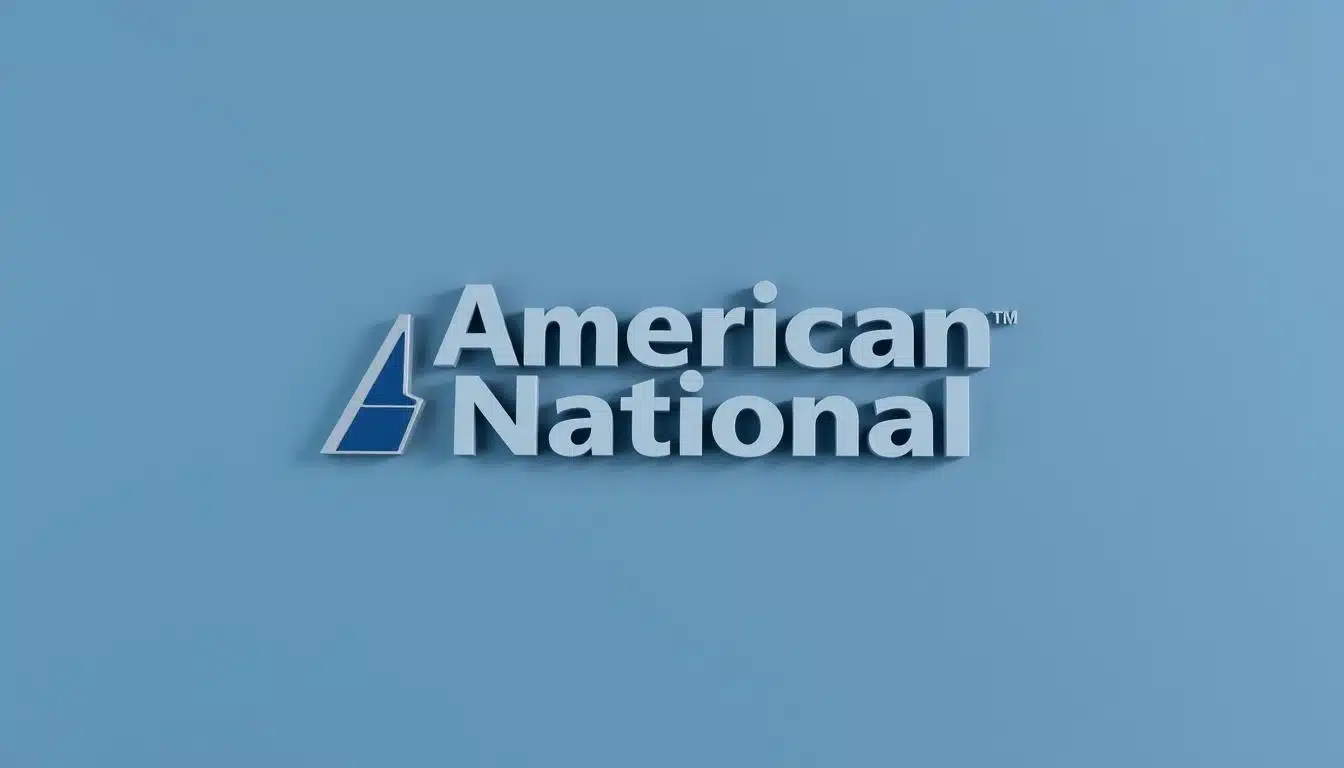Freelancers in the USA face a big challenge: finding affordable health coverage. Without employer help, they must figure out health insurance on their own. The cost is about $500 a month, which can be hard to manage.
But, tax subsidies can cut this cost to $200. Knowing about freelance health insurance options and the Affordable Care Act can help. This article will show you the best health insurance for independent contractors. It will help you make smart choices for your health and money.
Table of Contents
ToggleKey Notes
- The average monthly health insurance cost for freelancers is $500.
- Tax subsidies can potentially lower premiums to $200 per month.
- Understanding ACA can help navigate insurance options effectively.
- Freelancer’s Union supports millions with extensive insurance plans.
- COBRA extends coverage for 18 months after leaving a job.
- Self-employed individuals can access individual Health Insurance Marketplace.
- Health insurance premiums may be tax-deductible for freelancers.
Why Freelancers Need Health Insurance in the USA
Freelancers often don’t have health benefits from employers. This makes health insurance very important for them. The Affordable Care Act has made healthcare more affordable. But, many freelancers still find it hard to get health coverage that fits their needs.
Freelance work is unpredictable. A good health insurance plan protects against big medical bills. Without it, freelancers might have to stop working because of health issues. This could mean losing money.
Health insurance plans help with money and medical services. Freelancers can stay on a parent’s plan until 26, join a spouse’s plan, or get individual plans. Knowing these options helps freelancers make smart choices and avoid gaps in coverage.
Almost one in four freelancers don’t have health insurance. This shows how important it is to find affordable healthcare. Costs vary based on where you live, your lifestyle, and family size. Medicaid can help those who earn less than the federal poverty level.
Freelancers should use the Open Enrollment Period from November 1 to January 15. This time lets them get health insurance that meets their needs. Keeping health coverage is not just about following rules. It’s a way to stay financially stable and healthy in freelancing.
Challenges to find Affordable Health Insurance for Freelancers USA
Freelancers face big challenges when looking for affordable health insurance. They don’t have access to employer plans like regular employees do. This makes it hard for them to find good coverage at a low cost.
Freelancers also deal with income that changes a lot. This makes it tough to plan for health costs. In 2023, about 15.5 million Americans work for themselves. Over 88% of these freelancers don’t get health insurance from their jobs.
Many freelancers can’t afford health insurance. Around 24% of them don’t have any. The cost of insurance is high, with a monthly premium of $456 on average.
Choosing the right health plan is also hard for freelancers. Some plans might be cheaper but cost more when you need care. It’s important to think about your health needs when picking a plan.
To find affordable health insurance, freelancers need to act. They should compare prices and services from different insurers. Telehealth services are also a good option for saving money and getting care.
| Challenges | Impact | Potential Solutions |
|---|---|---|
| Lack of employer-sponsored plans | Higher insurance premiums and limited options | Explore health insurance marketplaces |
| Fluctuating income | Difficulty in budgeting for healthcare | Utilize health savings accounts |
| High coverage costs | Significant financial burden | Search for cost-saving subsidies |
| Complex insurance market | Confusion over available plans | Seek professional insurance guidance |
Health Insurance Options for Freelancers
Freelancers have special challenges finding good health insurance. Knowing about self-employed health insurance benefits helps a lot. Here are the main choices:
- Individual Private Plans: Freelancers can pick their coverage. They can change monthly costs and deductibles as needed. These plans are like custom-made suits, fitting your health needs.
- ACA Marketplace Plans: Freelancers can find many affordable options here. These plans meet Affordable Care Act standards and might offer subsidies based on income. You can choose from Catastrophic to Platinum, offering full health coverage.
- Group Health Plans: Professional groups can get better rates. Group plans often have more benefits than individual ones because of their size.
- Short-Term Coverage: These plans are temporary but don’t cover pre-existing conditions well. They’re a quick fix but not a full solution.
- Healthcare Sharing Ministries: This is a community-based option. Members share medical costs. It’s not traditional insurance but can help cut costs.
Freelancers must think carefully about these choices. Important terms like deductibles and out-of-pocket maxes are key. Knowing about claim denials, like the 16.6% rate from the Kaiser Family Foundation, helps too. Making the right choice leads to better health insurance for freelancers.
Health Insurance Options for Freelancers
Freelancers need to know about health insurance. It’s important to understand insurance terminology to make good choices. Here are some basic terms and coverage types for self-employed people.
Key Insurance Terms You Should Know as a Freelancer
Freelancers should learn key terms when looking at health insurance. Here are some important ones:
- Premium: The monthly payment for insurance.
- Deductible: The amount you pay before insurance kicks in.
- Copayment: A fixed cost for a service, paid at the time of care.
- Out-of-pocket maximum: The most you’ll spend in a year for covered services.
Health Insurance Options: What’s Available for Self-Employed Individuals?
Freelancers have many health insurance choices. They can look at:
- High-Deductible Health Plans (HDHPs): These plans have lower premiums but higher deductibles. They’re good for those who don’t need a lot of medical care.
- Health Savings Accounts (HSAs): With HDHPs, HSAs let you save tax-free for medical costs. This makes plans more affordable.
- Health Insurance Marketplaces: These were created by the Affordable Care Act. They offer many plans for self-employed people. You can compare them by coverage and cost.
- Group Plans: Freelancers might get plans from local chambers or business groups. These plans often have good coverage at good prices.
Knowing these health insurance options for self-employed individuals helps freelancers pick the best plan. This ensures they’re protected financially without giving up on healthcare.
| Insurance Plan Type | Average Monthly Cost | Deductible Range |
|---|---|---|
| High-Deductible Health Plan | $495 | $10,000-$20,000 |
| Health Savings Account | $0 (tax-free savings) | N/A |
| Marketplace Plan | $700+ (varies by state) | $1,000+ |
| Group Plan | $300-$500 | $1,000-$3,000 |
Top Health Insurance Providers for Freelancers in the USA
Freelancers in the USA often struggle to get health insurance. They look for the best health insurance providers for self-employed people. These providers offer good coverage at fair prices. Names like Blue Cross Blue Shield, Cigna, and Kaiser Permanente are well-known. Knowing what these providers offer is key to getting good healthcare.
Major Health Insurance Providers for Freelancers
Several companies are top choices for freelancer health insurance. Here are some:
- Blue Cross Blue Shield: It has a huge network, covering about 110 million members. It offers many plans for different needs.
- Cigna: It works with over 67,000 pharmacies and 175,000 mental health providers. Cigna focuses on being quick and easy to use.
- Kaiser Permanente: It has a big network with 39 hospitals and 734 medical offices. Kaiser Permanente emphasizes preventive care.
- Aetna: It offers affordable plans with the chance to get premium tax credits.
Comparing Freelance Health Insurance Plans (Bronze, Silver, Gold, Platinum)
When looking at health insurance quotes for freelancers, it’s important to know the differences:
| Plan Type | Monthly Premium | Deductible | Best For |
|---|---|---|---|
| Bronze | $381 | Higher deductible | Young, healthy individuals |
| Silver | $621 | Moderate | Balanced coverage seekers |
| Gold | $752 | Lower deductible | Frequent users of healthcare |
| Platinum | $927 | Lowest deductible | High medical expenses |
Countrywide Coverage Options and Network Availability
Freelancers need to focus on network availability. Most big health insurance providers offer coverage all over the country. This means access to many healthcare facilities. Companies like Cigna and Molina Healthcare focus on serving different people. This helps freelancers find plans that fit their needs and give them good access to care.
How to Use the Health Insurance Marketplace
Understanding the health insurance marketplace is key for freelancers. It offers affordable coverage options for the self-employed. Freelancers can find the right health plan by enrolling in the marketplace.
What is the Health Insurance Marketplace? (Overview)
The health insurance marketplace is a place for individuals to find health plans. These plans must follow the Affordable Care Act (ACA). They cover essential health benefits like emergency services and preventive care.
This helps freelancers choose the best plan for their needs and budget. They can compare different plans easily.
How to Enroll in the Individual Marketplace
To enroll, freelancers need to create an account on the marketplace website. The open enrollment period is from November 1 to December 15. It’s important to report household income accurately.
This affects eligibility for premium tax credits and savings. The website has tools to help estimate income. This makes it easier to find the right plan and cost.
Maximizing Tax Benefits and Premium Tax Credits as a Freelancer
Freelancers can get tax benefits that lower their premiums. To get these credits, they must report their income correctly. Misreporting can make them ineligible.
Freelancers may also find deductions for health insurance premiums on their taxes. Keeping track of health expenses helps save money. It also makes tax time easier.
Affordable Health Insurance for Freelancers: Top Tips
Finding affordable health coverage for self-employed folks is tough. Here are some key tips for freelancers to find great plans. Start by comparing prices. This helps you see what’s out there and find a plan that fits your budget and health needs.
Look at the different plans in the Health Insurance Marketplace. There are Bronze, Silver, Gold, and Platinum levels. Each level shows how much the plan covers and how much you pay. Choose a plan that matches your health needs to save money.
Think about Health Savings Accounts (HSAs). They let you save on health costs and lower your taxes. This can help you handle unexpected medical bills. Also, watch the Open Enrollment period from November 1 to January 15. This is when you can get a new plan.
Use resources like Freelancers Union. They offer health insurance advice and connect you with plans in all states. Joining professional groups can also get you better rates and more coverage.
Know what health services you need. Think about dental, vision, and prescription coverage. Adding long-term disability insurance from partners like Guardian can protect your finances.
| Plan Type | Average Monthly Premium | Coverage Level |
|---|---|---|
| Bronze | $333.80 | 60% of costs covered |
| Silver | $443.20 | 70% of costs covered |
| Gold | $497.40 | 80% of costs covered |
| Platinum | Varies | 90% of costs covered |
By following these tips and staying active in finding the right plans, freelancers can get affordable health coverage. This ensures they’re protected without breaking the bank. Talk to health experts for advice and use the tools available to get the most from your insurance.
How to Find the Best Health Insurance Quotes
Freelancers looking for health insurance quotes need a smart plan. Knowing about subsidies for self-employed people can help cut costs. By looking into financial help and knowing who can get it, freelancers can save money and get the health care they need.
Navigating Subsidies and Tax Advantages for Self-Employed Individuals
Getting health insurance as a freelancer has big perks. Many freelancers can get tax credits based on their income. The Affordable Care Act (ACA) helps make this coverage cheaper. To make the most of these subsidies, freelancers should:
- Check their income to see if they qualify.
- Know the difference between state and federal marketplaces.
- Fill out the enrollment process right to get all the benefits.
Exploring Health Insurance Savings: ACA Subsidies Explained
The ACA subsidies help freelancers understand how to save on health insurance. By using these subsidies, freelancers can find plans that fit their budget. Here’s a quick look at the savings:
| Income Level (%) | Premium Contribution (of income) | Potential Subsidy |
|---|---|---|
| 100 – 138% | 2 – 4%* | Up to full coverage via Medicaid |
| 139 – 200% | 4 – 6%* | $300 – $500 max monthly credits |
| 201 – 250% | 6 – 8.5%* | $200 – $400 max monthly credits |
| 251 – 400% | 8.5%* | Reduced premium credits |
Knowing these financial details helps freelancers plan better when looking for health insurance quotes for freelancers. By using all the subsidies they can, freelancers can get good coverage without spending too much.
Alternative Health Insurance Options for Freelancers
Freelancers face a tough time finding health insurance. With almost 9.6 million self-employed in the U.S., they need to know their options. Traditional plans don’t always fit their needs, so they look for something better.
Joining a Professional Employer Organization (PEO) is a good choice. PEOs let freelancers get group health plans. This can lower costs and offer more stability.
Health sharing ministries are another option. They help members share medical costs. But, it’s important to know they might not cover everything that regular insurance does.
Short-term health plans are also popular. They offer temporary coverage for a year or more. But, they can have high deductibles, so think carefully before choosing them.
| Alternative Options | Benefits | Drawbacks |
|---|---|---|
| Professional Employer Organizations (PEOs) | Access to group health plans | Potentially high fees for membership |
| Health Sharing Ministries | Lower premiums and community support | Limited coverage and restrictions on pre-existing conditions |
| Short-Term Health Plans | Flexible term options and lower initial costs | High deductibles and limited service coverage |
Freelancers need to think hard about each option. They should pick what fits their health needs and budget. Knowing all the options helps them make smart choices for their care.
Short-Term Health Insurance Plans for Freelancers
Freelancers often face gaps in health insurance. Short-term health insurance is a flexible, affordable solution. It’s great for those waiting for long-term plans or needing quick coverage.
Health Sharing Ministries: A Viable Alternative for Freelancers?
Health sharing ministries are an interesting option for freelancers. They offer a cost-sharing model where members help each other with medical costs. This approach can be cheaper than regular insurance, but it’s important to check the coverage and who can join.
Group Health Plans & Pooled Coverage Options for Freelancers
Group health plans and pooled coverage are becoming more popular. They let freelancers buy insurance together, which can be cheaper. Groups like Freelancers Union help members find these plans. They offer better coverage and a community of support.
Special Considerations for Freelancers
Freelancers face unique challenges when it comes to health insurance. Their income can change a lot, and so do their expenses. This makes it hard to find the right health insurance.
COBRA insurance is an option for freelancers. It lets them keep their old employer’s health plan for up to 18 months. But, they have to pay the whole premium each month. So, they need to think if they can afford it.
Short-term health insurance plans have low monthly costs but high out-of-pocket expenses. They don’t cover pre-existing conditions. Freelancers need to think carefully about their health needs before choosing this option.
Freelancers should also look at the federal Marketplace at HealthCare.gov. It has plans in different metal tiers. If they make little money, Medicaid might help them.
Freelancers can join groups or associations for health insurance. Working with agents or brokers can help find the right plan. They can also use the Self-Employed Health Insurance Tax Deduction to lower costs.
Freelancers might want to think about Health Savings Accounts (HSAs) for extra help with costs. They could also look at catastrophic health coverage. But, these options have higher costs. Planning well is key to getting good health coverage.
| Type of Insurance | Premiums | Deductibles | Coverage Highlights | Best For |
|---|---|---|---|---|
| COBRA | High (depends on employer plan) | Varies | Continuation of group plan | Recently unemployed freelancers |
| Short-term Health Insurance | Low | High | Limited coverage, no pre-existing conditions | Temporary transitions |
| Marketplace Plans | Vary by tier | Vary by tier | Comprehensive coverage options | All freelancers |
| Health Savings Accounts | N/A | N/A | Helps cover out-of-pocket expenses | Self-employed individuals |
| Catastrophic Coverage | Low to moderate | High | Basic coverage for major events | Young freelancers or healthy individuals |
Health Insurance for Remote Workers & Digital Nomads

Freelancers and remote workers face unique challenges when it comes to health insurance. They need digital nomads coverage options that fit their flexible lifestyles. Companies like SafetyWing offer global coverage, meeting the needs of digital nomads.
Insurance providers know remote workers need flexible policies. For example, SafetyWing offers up to $1.5 million USD in health insurance for digital nomads. Insured Nomads starts at $224 per month for individuals, covering them for at least six months.
Blue Cross Blue Shield’s GeoBlue policies offer full coverage for preventative care. This makes healthcare easy for remote workers. IMG Global also stands out, offering four tiers of medical coverage for routine needs and pre-existing conditions up to age 74.
Recently, 12 insurance providers have emerged for digital nomads. Companies like Medical for Nomads offer plans for those abroad. These plans include Major Medical, Standard, Comprehensive, and Fully Comprehensive.
World Nomads Travel Insurance is flexible, starting coverage while traveling. It also adjusts plans for lifestyle changes. It covers medical emergencies and leisure activities, including over 200 adventure activities.
| Provider | Starting Price | Coverage Amount | Features |
|---|---|---|---|
| SafetyWing | N/A | $1.5 million | Covers most countries |
| Insured Nomads | $224/month | N/A | Minimum coverage for 6 months |
| Genki Native | €105/month | N/A | Flexible and affordable |
| GeoBlue by Blue Cross Blue Shield | N/A | Full preventative care | Low deductibles |
| Medical for Nomads | N/A | N/A | Various tailored plans |
| World Nomads | N/A | N/A | Coverage for adventure activities |
| IMG Global | N/A | N/A | Covers pre-existing conditions |
| HCI Group | N/A | $2 million/year | Includes dental and vision care |
Looking for the right health insurance for remote workers is crucial. It gives freelancers peace of mind in their unique work settings. The growing number of options means remote workers can travel and work without worrying about their health.
How to Transition from Employer Coverage to Self-Employed Health Insurance
Switching to self-employed health insurance needs careful planning. Many freelancers move from employer plans to new choices. COBRA coverage for freelancers helps keep group insurance for a while.
COBRA lets you keep your group insurance for up to 18 or 36 months. This helps during the change. Self-employed folks can get tax credits for ACA Marketplace plans. These credits can lower your monthly costs.
Some might choose spousal coverage under an employer plan. Also, many states offer Medicaid under the ACA. This is for those with low incomes.
Professional groups offer health benefits for self-employed people. Short-term insurance is good for a quick fix. Accident and critical illness insurance can also help with unexpected costs.
Here is a comparison table summarizing key transition options:
| Insurance Option | Coverage Duration | Coverage Type | Eligibility Criteria |
|---|---|---|---|
| COBRA Coverage | Up to 18 or 36 months | Group health insurance | Former employees of qualifying employers |
| ACA Marketplace Plans | As long as enrolled | Individual plans | Income eligibility for tax credits |
| Medicaid | Indefinitely (if eligible) | State-sponsored health coverage | Income below 138% FPL |
| Short-term Health Insurance | Up to 12 months | Temporary coverage | No special requirements |
Knowing these options helps freelancers choose the best for their health. Moving to self-employed health insurance is easier with the right info.
Understanding COBRA and Its Relevance to Freelancers
Freelancers often face challenges with health insurance after leaving a job. COBRA, or the Consolidated Omnibus Budget Reconciliation Act, is key. It helps keep health insurance going during big life changes.
COBRA is for those who have lost a job or had a big change in life. It lets you keep your health plan for a while. This is important for freelancers looking for new insurance.
Keeping COBRA can cost a lot, up to 102% of the plan’s cost. But, it’s a safety net during tough times. Knowing about COBRA is crucial for freelancers.
There are resources to help understand COBRA. FAQs and guides can answer common questions. They help freelancers make smart choices.
COBRA is great for keeping coverage, but there are other options too. Looking at all health insurance choices can lead to better deals. This includes subsidies and tools like healthcare.gov.
| Life Event | COBRA Coverage Available? | Duration of Coverage |
|---|---|---|
| Job Loss | Yes | Up to 18 months |
| Reduction in Hours | Yes | Up to 18 months |
| Death of Employee | Yes | Up to 36 months for family members |
| Divorce | Yes | Up to 36 months for family members |
Knowing about COBRA helps freelancers keep health insurance. It makes job changes less stressful. Being informed about COBRA is key for good health insurance planning.
Enrollment Strategies & Tax Deductions
Self-employed folks have special chances to save money on health insurance. It’s key to pick the right plan to save money and get good benefits. You need to look at your income and match it with the right plan to stay financially healthy.
Freelancers can buy health insurance from providers or through the Health Insurance Marketplace. The Marketplace opens from early November to mid-December. During this time, freelancers should look at different plans, from Bronze to Platinum, to find the best one for them.
Self-employed people can deduct health insurance premiums from their taxes. This is if they pay directly and their medical costs are more than 7.5% of their income. This can really lower their taxes.
Low-income freelancers might get premium tax credits. These credits help pay for health insurance. If you qualify, these credits can make health insurance cheaper. Also, HRAs like QSEHRA and ICHRA let freelancers pay for medical costs without taxes.
The table below outlines key elements surrounding tax deductions and enrollment options:
| Enrollment Strategy | Tax Deduction Potential | Additional Notes |
|---|---|---|
| Enroll during Open Enrollment period | Eligible for premium tax credits | Check eligibility through income assessment |
| Use the Health Insurance Marketplace | Deduct 100% of premiums | Subsidies available for low-income individuals |
| Consider HRAs for reimbursement | Tax-free reimbursements | Flexibility in managing healthcare expenses |
| Choose High-Deductible Health Plans (HDHPs) | Potential for lower premiums | Pair with HSAs for additional tax savings |
| Analyze the coverage options | Minimize out-of-pocket costs | Focus on preventive care services |
Choosing the right health insurance plan and using tax deductions can greatly help freelancers. Knowing your options helps you make smart choices about health coverage.
Step-by-Step Guide to Enrolling in Freelance Health Insurance
Getting health insurance can be tough, especially for freelancers. A step-by-step health insurance enrollment guide can make it easier. It helps you find the right coverage for your needs.
First, think about your health needs. Do you need regular doctor visits, specialist care, or emergency services? Knowing this helps you make better choices later.
Then, figure out how much you can spend. The average cost for ACA Marketplace plans is $497 a month. Individual plans cost about $4,364, and family plans are around $8,439. Make a budget that includes premiums and any extra costs.
After figuring out your needs and budget, look at plan options. ACA plans have high deductibles, but short-term plans are cheaper. However, short-term plans don’t cover as much and don’t have out-of-pocket limits.
Think about what affects your premium costs. Age, where you live, smoking, and income all play a part. Knowing this helps you make a smart choice.
When you’re ready to enroll, watch the deadlines. If you lose coverage, you have 30 days to join a spouse’s plan. Use this time to compare costs and benefits.
Finally, finish your enrollment by submitting the needed documents. Also, learn about tax deductions that can help. There are other options like faith-based plans and small group insurance in some states.
By following this step-by-step health insurance enrollment guide, freelancers can choose the right health plan. Stay informed and proactive to get the best coverage for your freelance life.
Tax Deductions for Freelancers: How Health Insurance Premiums Can Save You Money
Freelancers often face unique financial challenges. Understanding tax deductions for freelancers can help a lot. Health insurance premiums are a big help, covering medical, dental, and long-term care for you and your family.
Self-employed people can use this deduction, even if they don’t itemize other deductions. Lowering your adjusted gross income (AGI) through these deductions can also help avoid phase-out rules. These rules can affect many tax breaks.
What you can deduct changes each month. This is especially true if you’ve had employer-subsidized health plans. You can only claim this deduction for months without employer coverage.
Also, the deduction limit is based on your freelance income. If your business had a tax loss, you can’t use this deduction. Partners in a business or LLC members can claim these premiums too, helping with tax savings.
You can also deduct premiums for your employees. This is another way freelancers can manage business expenses. The amount you can deduct for long-term care insurance changes with age, offering tailored savings.
This health insurance premium deduction is a big tax relief. It’s especially helpful since about 36% of freelancers don’t know about these deductions. Over 50% of freelancers might miss out on deductions because they don’t track their business expenses well.
In short, freelancers can deduct up to 20% of their income through qualified business income deductions. Keeping detailed records of insurance premiums is key to saving money.
Final Tips for Finding Affordable Health Insurance as a Freelancer in the USA
Freelancers need to be proactive to find affordable health insurance. Keep an eye on rate changes from insurers. They often adjust plans based on the market.
Using resources is key. Freelancers can get help from health insurance brokers. They find plans that fit your needs and budget. Also, groups like the Freelancers Union offer plans and networking.
Working with others can help too. Joining buying groups can lower your costs. This is especially true as more people work as freelancers.








